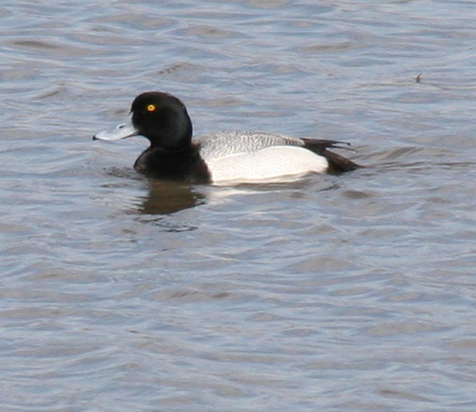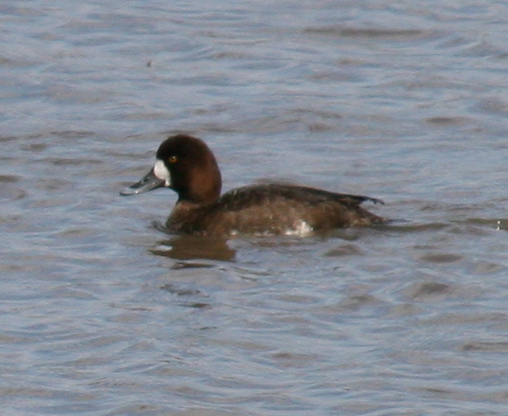Lesser Scaup – Aythya affinis
General:
Lesser Scaup are often hard to distinguish from the Greater Scaup when viewed at a distance and when a large scaup flock is encountered it will often have both species present. Although the Lesser Scaup has Lesser Scaupthe largest population of any species of diving duck in North America, their population has been steadily declining since the mid-1980s
The eggs of the Lesser Scaup are olive colored. The chicks hatch in about 21-28 days and they fledge in about 45-50 days. Lesser Scaup chicks are capable of diving under water on their hatching day, but they are too buoyant to stay under for more than just a moment.
The meat of the Lesser Scaup should be considered good. It is one of the better eating diving ducks.
Identification:
Male: The males are about 12″ long with a wingspan of 29″. The have a glossy black head with a purple cast (Greater Scaup’s head has a more green cast). The neck, breast and upper mantle are glossy black. Vermiculations on the sides and flanks are olive brown and contrast with the white chest and belly. The back is light gray with broad heavy vermiculations of sooty black. The tail, upper and under-tail coverts are black. The wing has a white speculum and the inner primaries are light brown, becoming darker towards the tips and outer primaries. The bill is a light blue-gray with a black tip, the legs and feet are gray and the iris is yellow.
 Female: The female has a brownish head, neck and chest. A white ring circles the base of the bill. The back, rump are dark brown and the speculum is white. The bill is similar to that of the male but slightly duller, the legs and feet are gray and the iris is yellow.
Female: The female has a brownish head, neck and chest. A white ring circles the base of the bill. The back, rump are dark brown and the speculum is white. The bill is similar to that of the male but slightly duller, the legs and feet are gray and the iris is yellow.
Habitat:
Lesser Scaupnest near prairie marshes, ponds, lakes and slow rivers, In winter range the can be found on coastal bays and larger lakes
Territory:
The Lesser Scaup breeds from interior Alaska and Northern Canada to the prairie states and east. They migrate south to British Columbia and Massachusetts south to the Gulf states and South America.
Diet:
Lesser Scaup feed on seeds of pondweeds, wigeon grass, wild rice, sedges and bulrushes. They also feed on crustaceans, mollusks, aquatic insects and small fish.